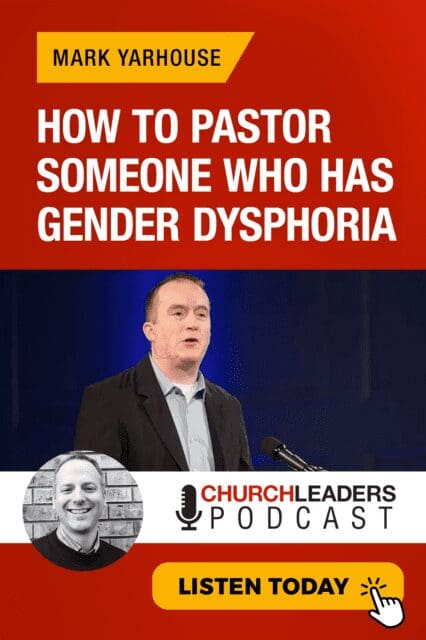Dr. Mark Yarhouse is a clinical psychologist who has devoted his life to researching and assisting people as they navigate the complex relationship between their sexual or gender identity and their Christian faith. He leads the Sexual and Gender Identity Institute at Wheaton College, where he also serves as a professor and the chair in psychology. Mark is also currently the chair of the task force on LGTBQ issues for Division 36 of the American Psychological Association. He has written extensively on topics of gender identity and faith, including his latest book, Emerging Gender Identities: Understanding the Diverse Experiences of Today’s Youth.
Other Ways to Listen to This Podcast With Dr. Mark Yarhouse
► Listen on Apple
► Listen on GooglePlay
► Listen on Spotify
► Listen on Stitcher
► Listen on YouTube
Other Podcasts in the LGBTQ and the Church Series
Juli Slattery: This Is How the Church Can Begin the LGBTQ Conversation
Gregory Coles: It’s Possible to Be Same-Sex Attracted and Fully Surrendered to Jesus
Ed Shaw: How God Has Used Same-Sex Attraction to Equip Me As a Pastor
Sean McDowell: Scripture Is Very Clear About God’s Design for Sexuality
Rachel Gilson: How Jesus Helps Me Say No to My Same-Sex Desires
Caleb Kaltenbach: Do You See the LGBTQ Community Through God’s Eyes?
Preston Sprinkle: Jesus Left the 99 to Pursue the One—And That Means Trans People
Laurence Koo: A Call for the American Church to Welcome Single (LGBTQ) Believers
Key Questions for Dr. Mark Yarhouse
-What do we know and what do we not know about where gender dysphoria comes from?
-What are the biggest needs you are seeing in the church right now related to sexuality and gender identity?
-What would you say to Christ-followers who believe that the Bible prohibits them from fellowshipping with someone who claims to be a believer, but is pursuing transitioning?
-What is the most effective way for pastors to engage people who struggle with gender dysphoria?
Key Quotes from Dr. Mark Yarhouse
“Gender dysphoria is the experience of distress that can be associated with a lack of congruence between a person’s biological sex and their gender identity.”
“I do think the church is at its best when it can do a couple things simultaneously…I think you do need a biblical starting point and firm scriptural foundation for the church. But then I think you are also going to need a winsome way of presenting that to a culture that is pretty skeptical of the church.”
“You need Christians with ‘convicted civility,’ and I would just add to that, convicted civility seasoned with compassion for the people who are navigating these questions around gender and sexuality. If you don’t have a heart for people, it’s going to be very hard for you, I think, to really be part of their journey.”
“The average Christian in the pew may tell you what they believe, but they don’t know why they believe what they believe. So you obviously want pastors who have done that homework…but I don’t know that a single pastor should think of themselves as a Long Ranger who has to rethink the whole thing over again.”
“There’s a global Christian witness in this area, there’s a historical Christian witness in these areas.”
“How are you conversant with the broader culture, which is very diverse?…How do you engage with others who disagree with you in a winsome manner, with that convicted civility, seasoned with compassion? I think that’s often the thing that’s missing.”


